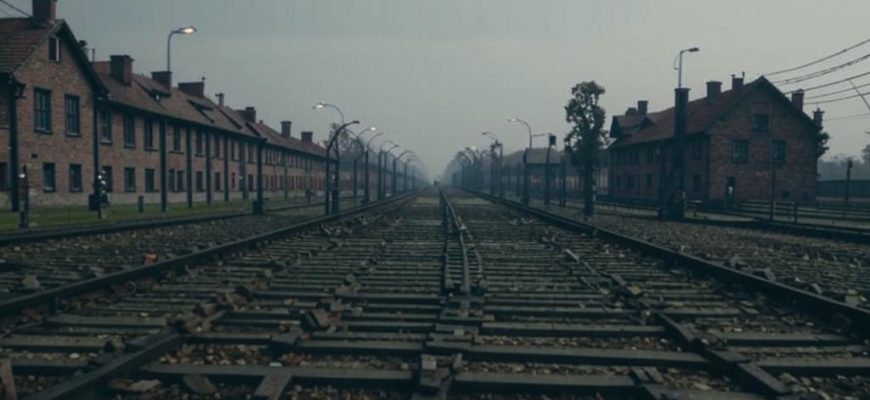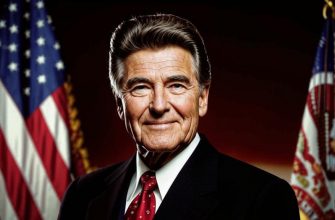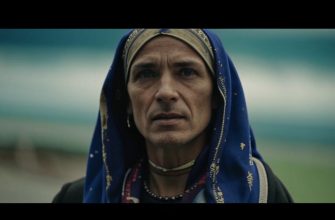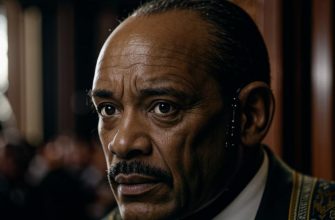Films About Auschwitz
Films about Auschwitz are a poignant and powerful representation of one of the darkest periods in human history. Auschwitz-Birkenau, the largest of the Nazi concentration and extermination camps, is a central symbol of the Holocaust. Films that explore this subject often focus on the atrocities committed, the resilience and suffering of the victims, and the moral and ethical questions surrounding this historical tragedy. These films serve as a reminder of the horrors of genocide and the importance of remembrance and education.
List of Films About Auschwitz
“The Pianist”, 2002
Director: Roman Polanski

Directed by Roman Polanski, this film is based on the autobiography of Władysław Szpilman, a Polish-Jewish pianist who survived the Holocaust. While not exclusively about Auschwitz, the film captures the brutal realities of Nazi-occupied Warsaw and the Jewish ghettos, with references to the concentration camps.
Starring: Adrien Brody, Emilia Fox, Daniel Caltagirone, Ed Stoppard, Maureen Lipman, Frank Finlay, Jessica Kate Meyer, Julia Rayner, Thomas Kretschmann, Michał Żebrowski;
Production year: 2002;
Genre: drama, war, biography, music;
MPAA rating: r;
Duration: 149 min.;
Rating: IMDB: 8,5;
More information about the film “The Pianist” on the website imdb.com
“The Boy in the Striped Pajamas”, 2008
Director: Mark Herman

Directed by Mark Herman, this film tells the story of an eight-year-old boy named Bruno, the son of a Nazi officer, who befriends a Jewish boy named Shmuel on the other side of the concentration camp fence. While not explicitly about Auschwitz, it provides a child's perspective on the Holocaust.
Starring: Asa Butterfield, Jack Scanlon, David Thewlis, Vera Farmiga, Amber Beattie, Sheila Hancock, Richard Johnson, Cara Horgan, David Hayman, Rupert Friend;
Production year: 2008;
Genre: drama, war;
MPAA rating: pg13;
Duration: 94 min.;
Rating: IMDB: 7,7;
More information about the film “The Boy in the Striped Pajamas” on the website imdb.com
“The Grey Zone”, 2001
Director: Tim Blake Nelson

Directed by Tim Blake Nelson, this film is based on the true story of the 12th Sonderkommando, a group of Jewish prisoners forced to assist in the extermination process at Auschwitz. The film provides a stark and brutal portrayal of the moral complexities faced by those trying to survive in the camp.
Starring: David Arquette, Steve Buscemi, David Chandler, Allan Corduner, Daniel Benzali, Mira Sorvino, Natasha Lyonne, Michael Stuhlbarg, Harvey Keitel, Velizar Binev;
Production year: 2001;
Genre: drama, war, history;
MPAA rating: r;
Duration: 108 min.;
Rating: IMDB: 7;
More information about the film “The Grey Zone” on the website imdb.com
“Playing for Time”, 1980
Director: Daniel Mann, Joseph Sargent

Directed by Daniel Mann, this television film is based on the memoirs of Fania Fénelon, a French-Jewish musician who survived Auschwitz by playing in the camp's orchestra. The film highlights the role of music as both a means of survival and a source of moral conflict.
Starring: Vanessa Redgrave, Jane Alexander, Maud Adams, Christine Baranski, Robin Bartlett, Marisa Berenson, Verna Bloom, Donna Haley, Lenore Harris, Mady Kaplan;
Production year: 1980;
Genre: drama, music, biography, history;
Duration: 150 min.;
Rating: IMDB: 7,3;
More information about the film “Playing for Time” on the website imdb.com
“Escape from Sobibor”, 1987
Director: Jack Gold

Directed by Jack Gold, this television film recounts the true story of the largest escape from a Nazi extermination camp, Sobibor. While primarily focused on Sobibor, it shares thematic and historical links with the experiences at Auschwitz.
Starring: Alan Arkin, Joanna Pacula, Rutger Hauer, Hartmut Becker, Jack Shepherd, Emil Wolk, Simon Gregor, Linal Haft, Jason Norman, Robert Gwilym;
Production year: 1987;
Genre: drama, war, history;
Age: 16+;
Duration: 119 min.;
Rating: IMDB: 7,4;
More information about the film “Escape from Sobibor” on the website imdb.com
“Night and Fog”
Director: –
Directed by Alain Resnais, this French documentary short film combines historical footage of the Nazi concentration camps, including Auschwitz, with contemporary scenes from the now-deserted camps. It serves as a powerful reminder of the atrocities committed during the Holocaust.
Starring: -;
Genre: thriller;
Rating: IMDB: 0;
“Auschwitz”, 2010
Director: Uwe Boll

Directed by Uwe Boll, this film takes a controversial and graphic approach to depicting the daily operations and brutal realities of life and death in Auschwitz. It aims to provide a stark, unflinching look at the mechanisms of the Holocaust.
Starring: Steffen Mennekes, Arved Birnbaum, Maximilian Gärtner, Friedhelm Gärtner, Uwe Boll, Nik Goldman, Harold Levy, Alexis Wawerka;
Production year: 2010;
Genre: drama, war, history;
Age: 18+;
Duration: 71 min.;
Rating: IMDB: 3,2;
More information about the film “Auschwitz” on the website imdb.com
These films collectively serve to educate, memorialize, and provoke thought about one of the most harrowing episodes in human history, ensuring that the lessons of Auschwitz are never forgotten.
In reflecting on the array of films about Auschwitz, we confront a canvas painted with the darkest hues of human history, yet not devoid of fleeting touches of indomitable human spirit and courage. These cinematic explorations, ranging from raw documentaries to heart-wrenching narratives, serve not only as a medium for remembrance but also as a solemn reminder of the abyss into which humanity can plunge. Through their lenses, we are invited to bear witness, to remember the unimaginable horrors faced by millions, and to ensure that such atrocities never find a place in our future. In their stark portrayal of pain, resilience, and the complex tapestry of human emotions in the face of absolute despair, these films about Auschwitz achieve an invaluable educational purpose. They remind us that while the past may be immutable, how we understand it, honor those who suffered through it, and prevent its recurrence, rests in our hands. Through the power of cinema, the stories of Auschwitz continue to resonate, urging us to look within and around, to recognize the value of humanity, and to uphold the principles of empathy and justice in a world still scarred by the shadows of its past.









